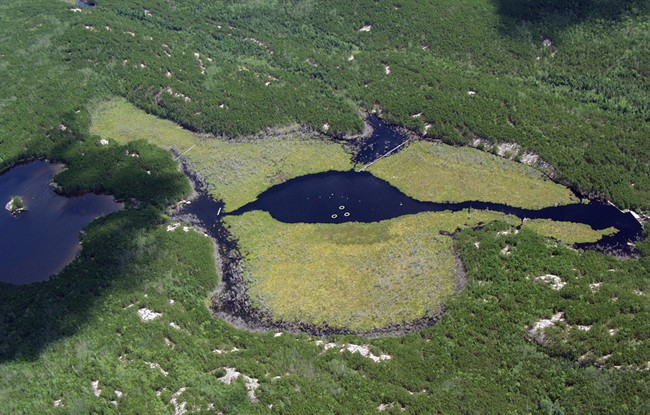KENORA, Ont. – Ontario is pledging $2 million per year to keep a world-famous experimental research area open in the northwestern part of the province.

Premier Kathleen Wynne made the announcement Monday in Kenora, about 50 kilometres northwest of the Experimental Lakes Area.
The remote region has been used since 1968 for fundamental freshwater studies.
Ottawa announced last year that it was closing the area to save $2 million annually, prompting critics to accuse the Conservatives of hacking away at environmental science.

Get breaking National news
Wynne had said the province would help with operating costs, along with Manitoba.
A Winnipeg-based, non-governmental research organization — the International Institute for Sustainable Development — is in negotiations to take over management of the 58-lake facility.
The funding announced Monday will allow the facility to remain open while the organization hashes out a long-term agreement with Ontario and the federal Department of Fisheries and Oceans, officials said.
“Today is a good day for science,” IISD president Scott Vaughan said in a statement.
Wynne, meanwhile, said the investment would help make Ontario a world-class destination for scientific research.
“The research performed here provides invaluable knowledge about climate change and helps protect freshwater systems around the world,” she said.
- Plane with ‘suspected landing gear issue’ moved after rough Halifax landing
- Norad paying ‘full attention’ to Chinese-Russian air co-operation
- ‘Let’s not panic’: Canada picks up the pieces after shocking loss to Latvia at world juniors
- How modern diplomacy is — and isn’t — like how it’s shown on ‘The Diplomat’







Comments